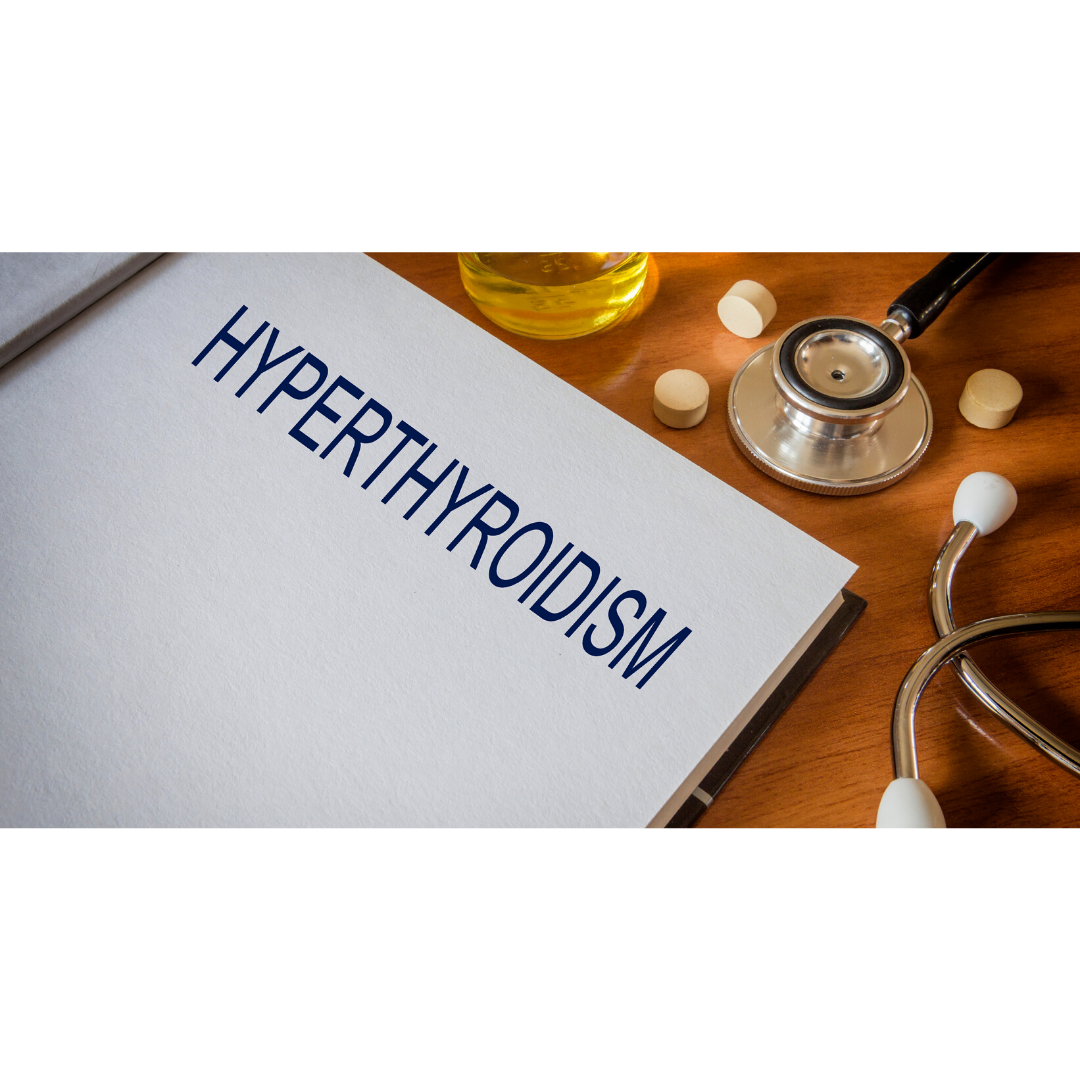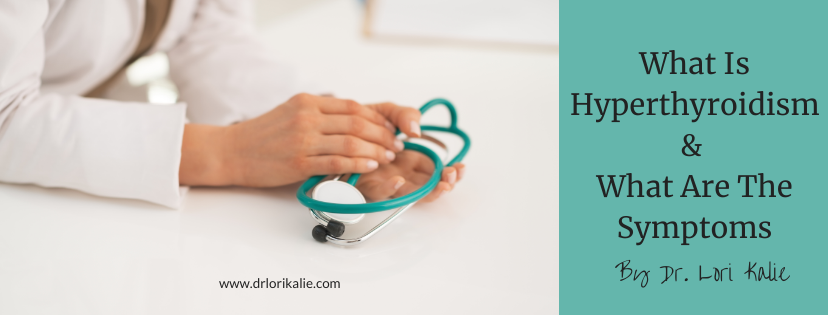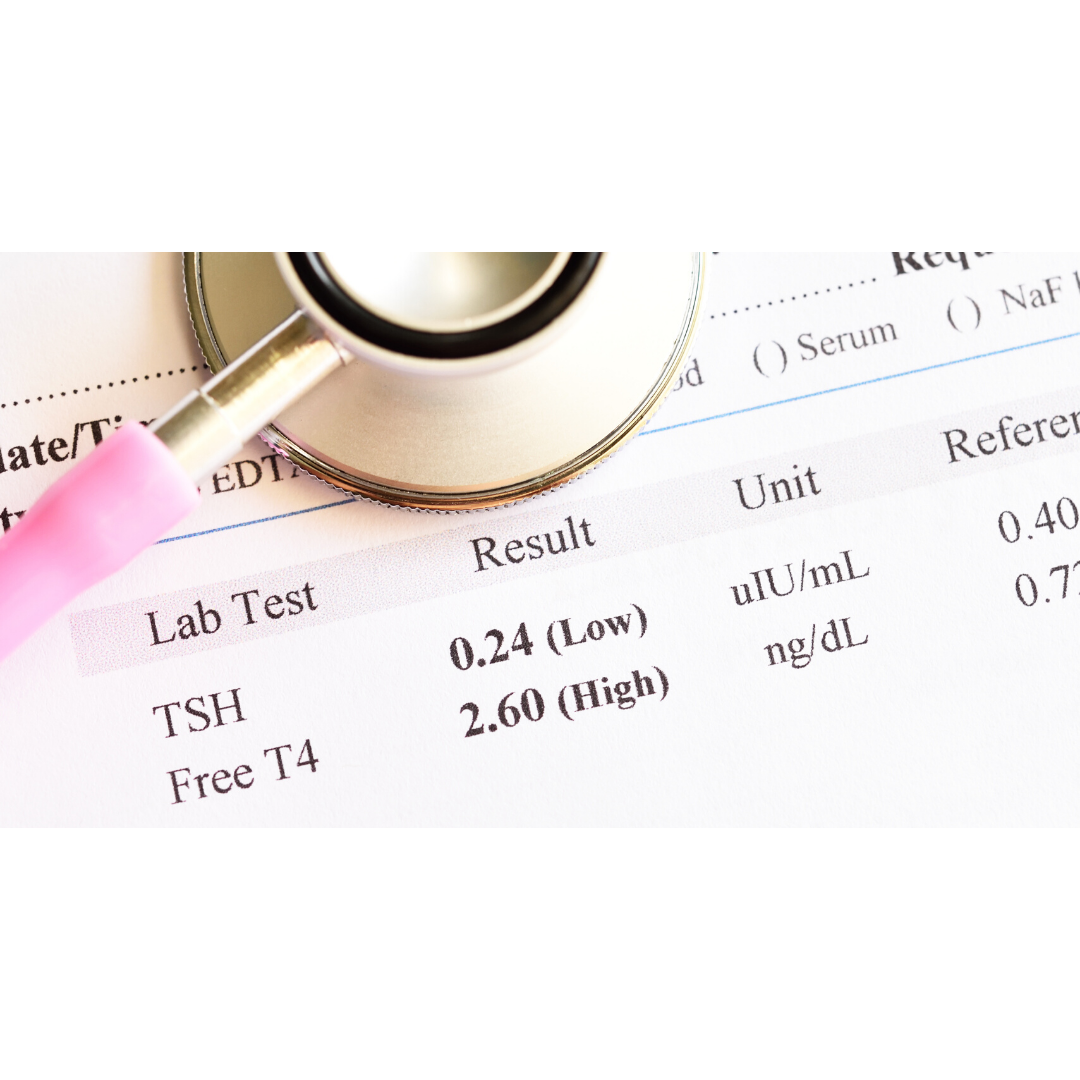If you would describe someone who is hyper, that person is probably always moving and going, can’t sit still, talks incessantly and is a bundle of energy. Children diagnosed with hyperactivity disorder have a hard time focusing their thoughts and actions, and sometimes act out physically because they need an outlet for their energy. The prefix “hyper” generally means over, excess or exaggeration. In the case of hyperthyroidism, it means your thyroid gland is working too well. It is producing excessive amounts of the thyroid hormones T3 and T4.
One of the most important jobs your thyroid does is regulate your metabolism. This is the way you use energy, so if you are producing too many thyroid hormones, you will have multiple bodily processes that speed up dramatically. This puts unneeded stress and strain on those glands and processes, and can cause the following symptoms.

What Is Hyperthyroidism
- Dramatic change in appetite, up or down
- Fatigue
- Heart palpitations
- Excessive sweating
- Like menstrual periods, missed periods
- Weak muscles
- Sudden paralysis
- Changes in your vision
- Dizziness
- Hair loss, thinning of hair
- Problems sleeping
- Diarrhea
- Increased sensitivity to eat
- Irritability and mental disturbances
- Shortness of breath
- Tremors, shaking
If you experience several of the symptoms just listed, consult your doctor. Ask for a thyroid checkup. Hyperthyroidism is easily treated with diet and lifestyle changes, but should not be underestimated. Untreated or unsolved hyperthyroidism can lead to very serious heart problems and a condition known as thyroid storm.
Thyroid storm occurs when your heart rate, body temperature and blood pressure are all elevated to critically high levels. Thyroid storm is rare, because it means the many symptoms of hyperthyroidism have not been receiving enough attention. In most cases, people suffering from several of the symptoms mentioned earlier are going to seek out treatment. And since dietary, exercise and lifestyle changes have such a quick and effective impact on hyperthyroidism, the great majority that suffer from an overactive thyroid will not have this problem for long if they treat it properly.
People with hyperthyroidism should avoid refined and processed foods, especially white bread, white pasta and sugar. Get more B vitamins and iron in your diet, fresh vegetables and seaweed, and whole grains. Get up and get active more often than when you sit and remain inactive. Drink lots of water throughout the day and get plenty of rest. Make lifestyle choices which limit the amount of stress you encounter, as this can overtax your thyroid as well.
Download my FREE 5-Day Thyroid Recovery Plan. You will get information about how to reverse your thyroid condition and a meal plan and thyroid friendly recipes for 5 days.







